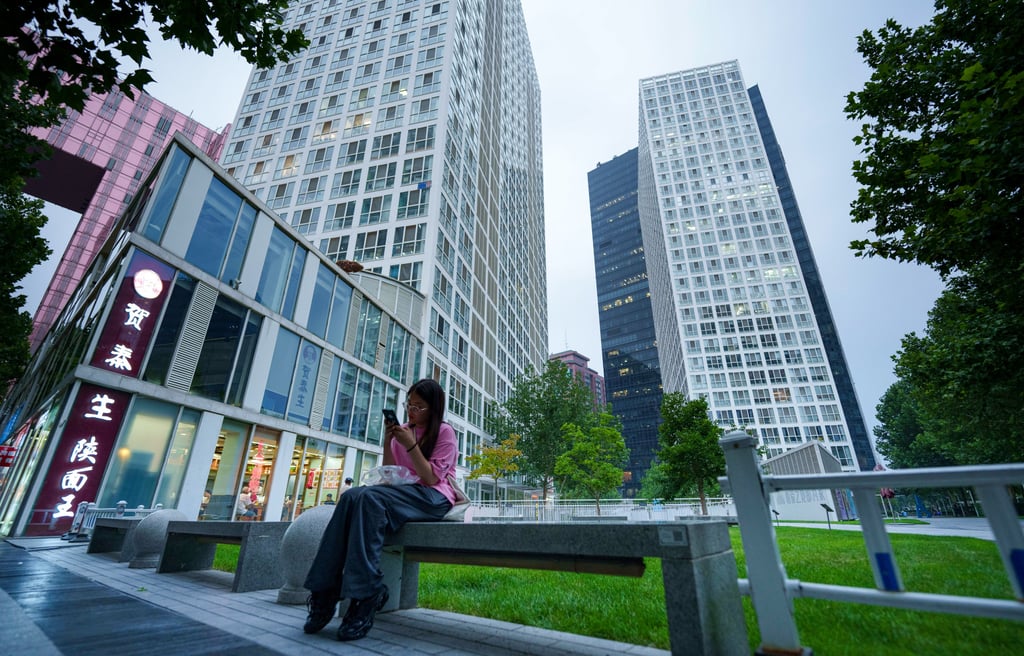“Office rental prices in the central business district have dropped 20 to 30 percent compared to last year because the economy is bad, many foreign companies are leaving, and many companies are closing. [generally] “struggling to survive,” said Ma Xiaoyu, a Beijing-based real estate agent.
Office building owners in the central business district are seeing a surge in vacant space as major state-owned enterprises, such as Sinochem Holdings and China Huaneng Group, have moved their headquarters to the Xiongan New Area, located about 100 km southwest of the capital.
“Landlords are now offering large rent discounts and generous rent-free periods to retain tenants and fill the growing number of vacant spaces,” Ma said. “As developers do not want their property prices to appear too low, they are waiving rent for a few months to effectively lower costs for tenants.”
Leading tech companies have also moved their offices out of the city, further increasing vacancy rates. For example, Alibaba Group Holding recently moved its Beijing headquarters to an industrial park 22.5km outside the city centre, freeing up more than 150,000m2 of office space in the Wangjing district. Alibaba owns the South China Morning Post.
As a result, the Wangjing and Jiuxianqiao districts in northeast Beijing, which are home to several large Chinese and international conglomerates, saw their vacancy rate jump by 2.2 percentage points quarter-on-quarter to 24.5 percent in the three months to June, the highest in the city.
Samsung Tower, a 62-story building in the central business district where the vacancy rate has risen to nearly 20 percent, has lowered its rent to 7.4 yuan per square meter per day, 18.7 percent below the area’s average rent of 9.1 yuan per square meter per day, according to data provided by market insiders.
The tower, which houses the South Korean conglomerate’s China headquarters, is also offering a nine-month lease-free period, far exceeding the three-to-four months offered by similar companies in the central business district, in the hope of attracting tenants to fill the 8,600 square meters of empty space.
“The main focus of competition among landlords is still on price, as tenants are very sensitive to rental levels in the current environment,” said Lu Ming, research director at Colliers North China.
“When vacancy rates remain high above 20 percent, it is difficult for rents to bottom out or stabilize,” he said. “The market still needs more time and patience for demand to recover.”
The relocation of state-owned enterprises from Beijing, aimed at reducing the city’s “non-core” functions, to the Xiongan New Area has raised the profile of the area. The smart city was established in 2017 in northern Hebei province to house major state-owned enterprises and serve as a hub for the capital and the surrounding economy.
As of March this year, four state-owned enterprises, including Sinochem Holdings and China Huaneng Group, had registered their headquarters in Xiongan, according to data from Qichacha, a company registration agency.
Other state-backed conglomerates, including China Three Gorges Corp and China Electronics Corp have also moved their headquarters out of Beijing in recent years in response to a state-led relocation drive.

“Beijing has traditionally been the center of government affairs and the headquarters of most state-owned enterprises, but that is starting to change now,” said Yan Yuejin, director of the E-house China Research and Development Institute. “Therefore, Beijing’s property market cannot be viewed only from an economic perspective. You also have to consider policies and politics.”
In the first half of 2024, leasing activity in Beijing’s office segment has improved from the same period last year, but is still far from the anticipated recovery rate, according to Mi Yang, head of research for JLL North China.
“[Still]“Rents across the city are expected to continue to decline in the second half of 2024, while vacancy rates in the A-grade market are expected to remain stable,” Mi said, noting that a number of leases are set to expire this year, potentially boosting demand in the market.
However, as China’s economic recovery remains volatile and the office market remains challenging, landlords will be encouraged to offer more favorable terms to retain tenants.
“As rents continue to decline, the price gap between different submarkets and asset types is expected to narrow, increasing competition between these categories,” said Colliers’ Lu.
Recent trends in market rents suggest that the office sector as a whole is shifting from a local rent battle to a broader price war across the city, he added.


